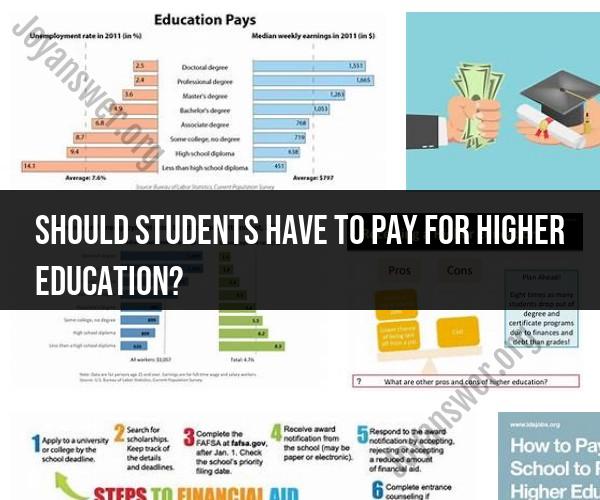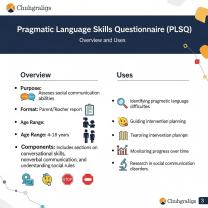Should students have to pay for higher education?
The debate on whether students should have to pay for higher education is a complex and contentious issue, and opinions vary widely. There are arguments both in favor of tuition fees and in favor of making higher education free or heavily subsidized. Here are key points from both sides of the debate:
Arguments in Favor of Students Paying for Higher Education:
Economic Sustainability: Proponents argue that tuition fees are necessary to sustain and improve the quality of higher education institutions. Tuition revenue helps fund faculty salaries, research programs, and campus infrastructure.
Personal Responsibility: Some believe that students should contribute to the cost of their education as a matter of personal responsibility. Paying for education can instill a sense of value and commitment to their studies.
Merit-Based Allocation: Tuition fees can be used to allocate resources based on merit and need. Scholarships, grants, and financial aid programs can help those who cannot afford higher education.
Reducing Tax Burden: Supporters of tuition fees argue that shifting the cost of higher education to students can relieve the tax burden on the general population. This can be seen as a more equitable distribution of costs.
Encouraging Efficiency: When students and their families invest in education, they may make more informed choices and seek out programs and institutions that offer better value for their money.
Arguments in Favor of Free or Highly Subsidized Higher Education:
Equal Access: Advocates for free or heavily subsidized higher education argue that it promotes equal access to education. It ensures that financial constraints do not prevent qualified students from pursuing higher education.
Reducing Student Debt: The high cost of tuition can lead to substantial student loan debt, which can burden graduates for years. Making education free or affordable can reduce the need for excessive borrowing.
Economic Benefits: Supporters contend that providing free or affordable higher education can lead to a more educated workforce, stimulating economic growth and innovation.
Social Equity: Some argue that higher education is a public good that benefits society as a whole. As such, its costs should be borne collectively through taxation, similar to funding for K-12 education.
Global Competitiveness: Countries with accessible higher education systems may be better positioned to compete globally by fostering a highly skilled and educated workforce.
Reducing Income Inequality: Making higher education affordable can help reduce income inequality by expanding opportunities for individuals from lower-income backgrounds.
The debate over whether students should have to pay for higher education often centers on the balance between individual responsibility and societal benefits, as well as questions of affordability, access, and the role of government in education.
It's important to note that different countries and regions have adopted various approaches to funding higher education, ranging from fully subsidized systems to tuition-driven models. The specific policies and solutions adopted depend on a country's economic circumstances, political priorities, and social values. Ultimately, the answer to whether students should pay for higher education varies depending on the context and the goals of the education system in a given region.












